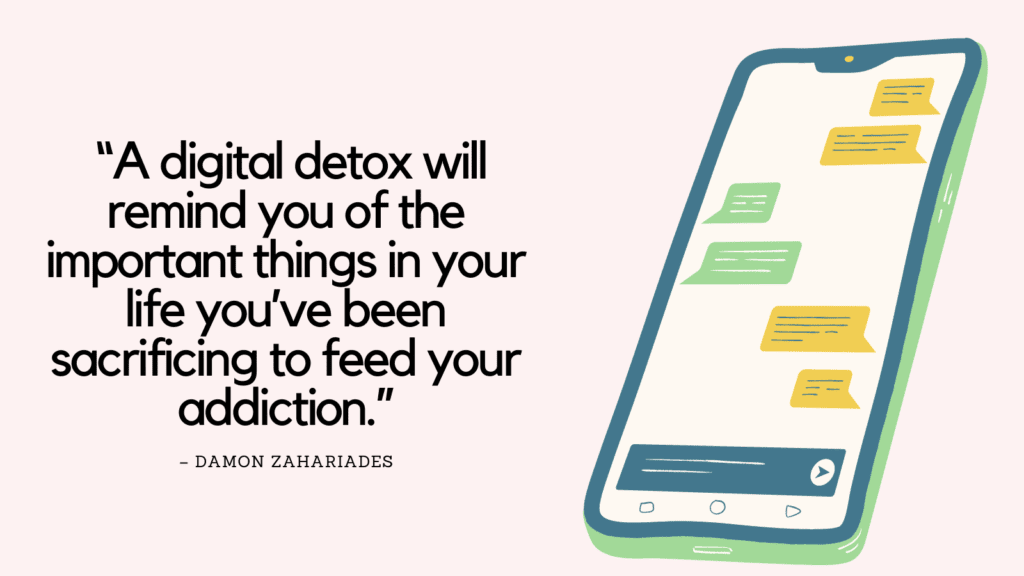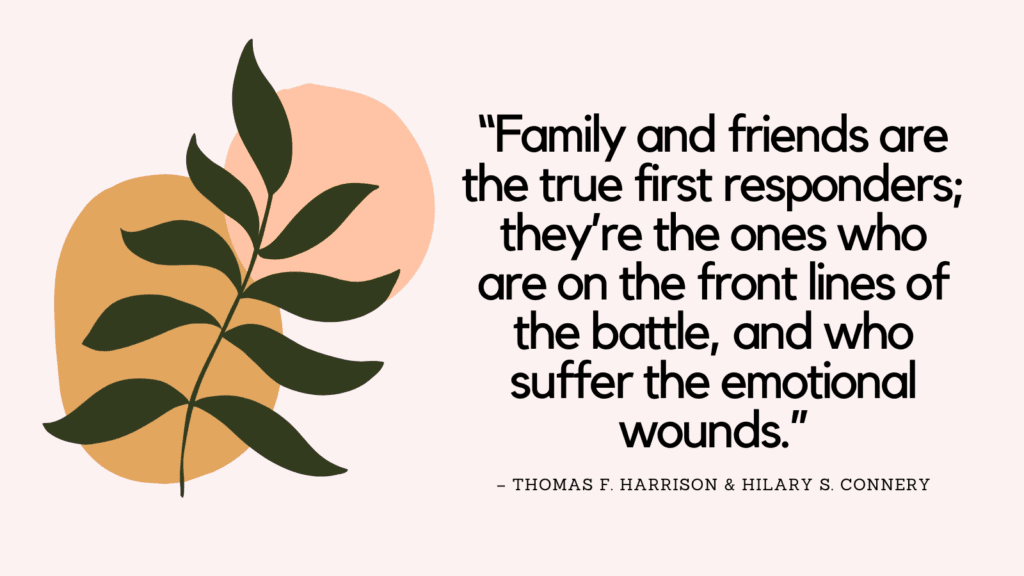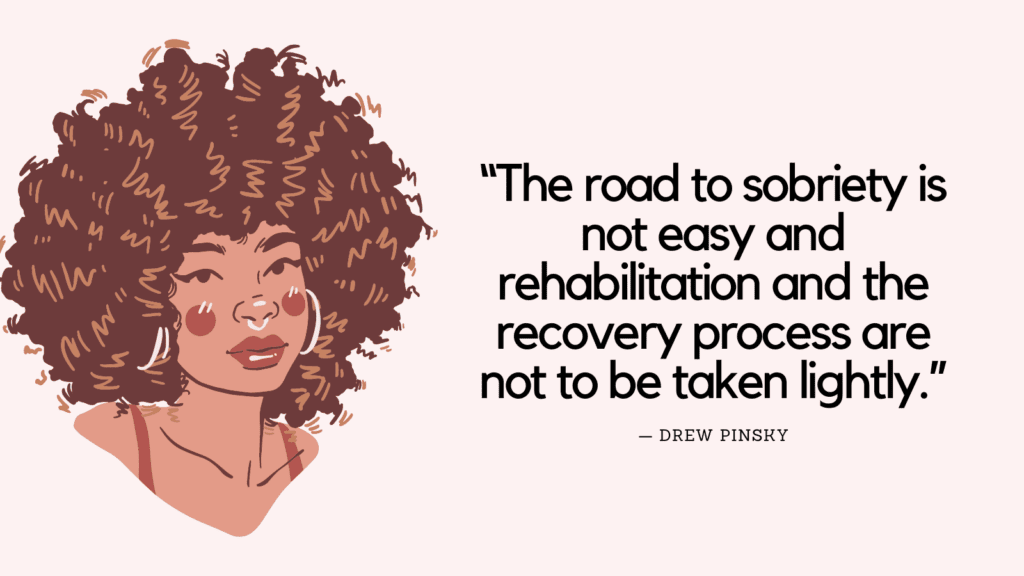This post contains some of the best social media break quotes.
Social Media Break Quotes
1. “Indicators of problematic aspects of social media use include the following: comparison with others, excessive use that interferes with other activities or indicates dependence, behaviors that raise safety issues (sexting or revealing personal information), damaging influences due to certain content, or other negative outcomes from social media use (bullying).” – Shauna Frisbie
2. “Despite spending more time in online meetings and on social media, many people realized for the first time that they experience a sense of disconnection from others when they are physically isolated.” – Shauna Frisbie
3. “Do you feel inexplicably happy when you log onto your favorite social media sites? Do you experience a sense of well-being the moment you visit your Facebook or Twitter pages? If so, your brain’s reward system is reacting in the same way as that of an addict.” – Damon Zahariades
4. “Elevated exposure to photographs of self and friends on social media platforms such as Facebook, as opposed to other social media or Internet activities that are not photo-based, is a key factor in greater body dissatisfaction.” – Shauna Frisbie
5. “For many of us, social media can feel like an unpredictable rollercoaster ride. Our mood can swing from elated after getting a slew of likes on a post, to worthless in response to being criticized in a comments thread. Depression and rejection can strike after you realize you weren’t invited to that get together you knew nothing about until logging on and seeing a picture of all your friends together, minus you.” – Paula Durlofsky
Related: How To Step Out Of Denial? Top 10 Steps To Overcome Denial When The Truth Is Heartbreaking
6. “Have you ever reached for your phone right after waking up in the morning to check for Facebook updates? Ever pulled your phone out at a restaurant to read the latest tweets on Twitter? Ever log onto Pinterest, Instagram, or Google Plus multiple times during the workday, looking over your shoulder to make sure your boss doesn’t notice? If so, you might be addicted to social media.” – Damon Zahariades
7. “If you’re addicted to social media, you’ll feel the unremitting lure of sites like Facebook, Twitter, and Instagram. They’re always calling to you, tempting you to drop whatever you’re doing to log on.” – Damon Zahariades
8. “If your social media and digital habits have reached the point where you’ve lost control over your me, your attention span, or your ability to follow through with simple tasks or day-to-day responsibilities, if your relationships and your mental health are suffering, take heart—you’re not alone!” – Paula Durlofsky
9. “In the same way illicit narcotics like heroine are designed to be addictive, so too are social media websites like Facebook. The engineers who designed the sites have done everything in their power to make sure you’re compelled to visit them over and over.” – Damon Zahariades
Related: Porn Addiction Test (+Best 6 Tips On How To Get Free From Porn Addiction)
10. “Is social media making you more anxious? Are your virtual relationships stressing you out? Have you ever had social-media regret because you overshared in a post? Do you go into panic mode when you don’t have your phone? If you’ve answered yes to one or more of these questions, your problems with social media might be related to your attachment style.” – Paula Durlofsky
11. “Let me be clear: social media isn’t and can’t ever be a substitute for our real-life relationships, real-life conversations, and real-life experiences.” – Paula Durlofsky
12. “Living a virtual life isn’t equal to living an actual life. Yet for so many, social media relationships and technology experiences outnumber real experiences.” – Paula Durlofsky
13. “Magazines depicting the ideal, thin body type have long been recognized as triggers for body dissatisfaction; however, they cannot compare with social media in term of convenience. Social media can be accessed anytime, from anywhere, on a smartphone with WiFi connection; and most young people are constantly connected.” – Shauna Frisbie
14. “Multitasking, particularly with technology, puts an enormous strain on the brain. Between reading and responding to texts, checking email, logging onto social media, playing video games, and reading the news, in addition to addressing work-related responsibilities, our brains are in constant overdrive.” – Damon Zahariades
Related: Are You Addicted To Your Phone Quiz (+Digital Detox Challenge)
15. “Research examining the link between social media and avoidant attachment style suggests that avoidantly attached individuals inflate their positive self-views. They do this by underreporting feelings of intense emotion, concealing what they consider to be negative aspects of themselves to promote a positive self-image, and rarely posting personal information, like posting a family picture or a comment about having a tough day at the office” – Paula Durlofsky
16. “Research has shown that our average attention span is shorter than that of a goldfish. In 2000, we were able to focus for 12 seconds. Today, our attention drifts after eight seconds. It’s safe to say our phones, tablets, computers, video game consoles, and favorite social media sites are partly to blame. They deliver stimuli in short, powerful bursts. They also encourage us to multitask.” – Damon Zahariades
17. “Researchers are uncertain regarding what the brain considers to be rewarding stimuli in the activity. But studies show that the act of checking emails, texts, and social media releases dopamine in the same fashion as wagering large sums in a casino.” – Damon Zahariades
18. “Social comparisons and aspirational images abound on social media, yet Internet use is often overlooked in therapy.” – Shauna Frisbie
Related: Impulsivity Test: Am I Impulsive?
19. “Social media is an identity-testing space where valued attributes are displayed and feedback is the norm.” – Shauna Frisbie
20. “Social media use can be especially problematic for individuals with eating disorders.” – Shauna Frisbie
21. “Studies show that impulsiveness is associated with an addictive personality. You’re more likely to develop a dependency on your phone, the internet, and social media if you lack the ability to control your impulses.” – Damon Zahariades
22. “Technology spans a variety of devices and platforms. From smartphones, tablets, and video game consoles to social media, news media, and email. It’s worth addressing how each of these can slowly become an obsession.” – Damon Zahariades
23. “Bottom line: remove your social media apps. You can always reinstall them after completing your digital detox. Or if you’re like me, you’ll find that life is more enjoyable without them.” – Damon Zahariades
24. “Prior to your detox, you may have compulsively checked your phone for new messages or social media updates, even when having lunch with someone. After taking an extended technology break, you’ll find it easier to resist the compulsion.” – Damon Zahariades
25. “A digital detox brings instant relief. You’ll spend time away from your gadgets, giving your brain a much-needed rest. Rather than trying to keep up with text messages, emails, and social media updates, along with your daily work-related responsibilities, you can relax.” – Damon Zahariades
Related: How To Stop Bad Habits And Addictions?

How to Take a Social Media Break?
Taking a social media break can be beneficial for your mental and emotional well-being. Here are some steps to help you effectively take a break from social media:
1. Set clear intentions: Determine why you want to take a break from social media. Whether it’s to reduce stress, regain focus, or improve your overall well-being, knowing your purpose will help you stay motivated throughout the process.
2. Plan ahead: Inform your close friends, family, and colleagues about your social media break so they are aware of your absence and can reach you through other means if needed.
3. Choose a duration: Decide how long you want your break to be. It could be a day, a week, or even longer. Setting a specific timeframe helps you commit to the break and manage expectations.
4. Disable notifications: Turn off notifications from social media apps to avoid constant distractions and temptations. This will allow you to focus on other activities without constantly being pulled back into the online world.
5. Remove social media apps: Consider temporarily deleting or deactivating social media apps from your devices. This reduces the accessibility and makes it more challenging to mindlessly browse.
6. Fill the void with alternate activities: Identify other fulfilling activities to engage in during your break. This could include spending time with loved ones, pursuing hobbies, reading books, exercising, or exploring new interests. Find activities that bring you joy and fulfill your need for social connection.
7. Practice self-reflection: Use the break as an opportunity to reflect on your relationship with social media. Consider its impact on your mental health, self-esteem, and productivity. This introspection can help you develop healthier habits and boundaries when returning to social media.
8. Seek support: If you find it challenging to stay away from social media, seek support from friends or join a community of like-minded individuals who are also taking a break. Having a support system can provide encouragement and accountability.
Conclusion
Taking a social media break is a personal decision. The goal is to create a healthier balance between your online and offline life, and to prioritize your mental and emotional well-being.



